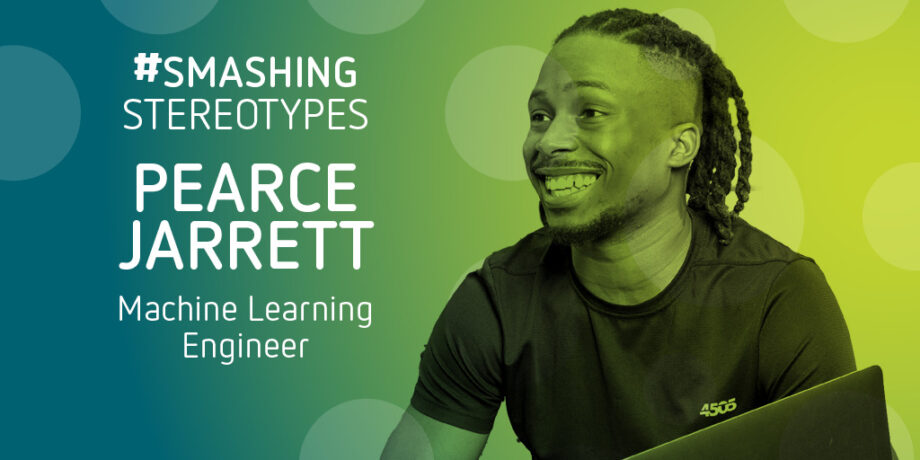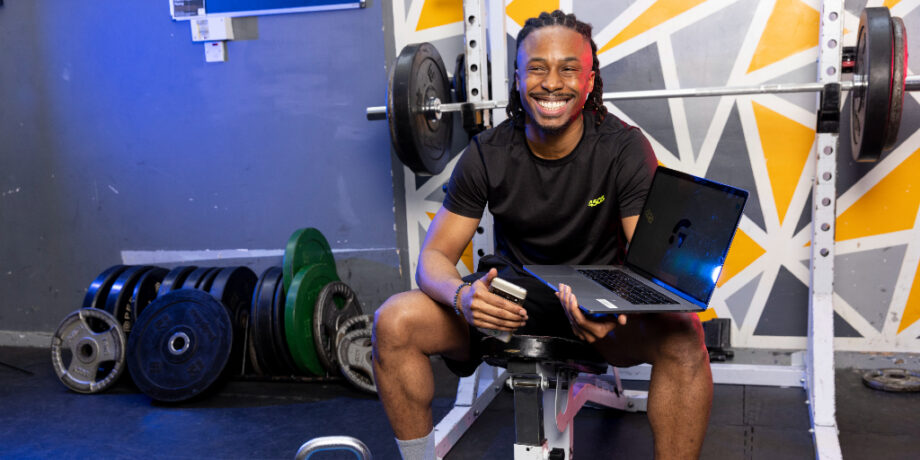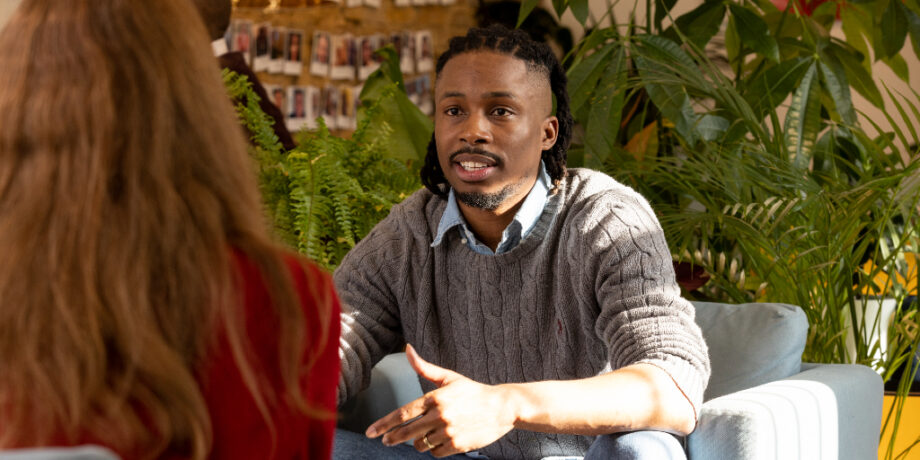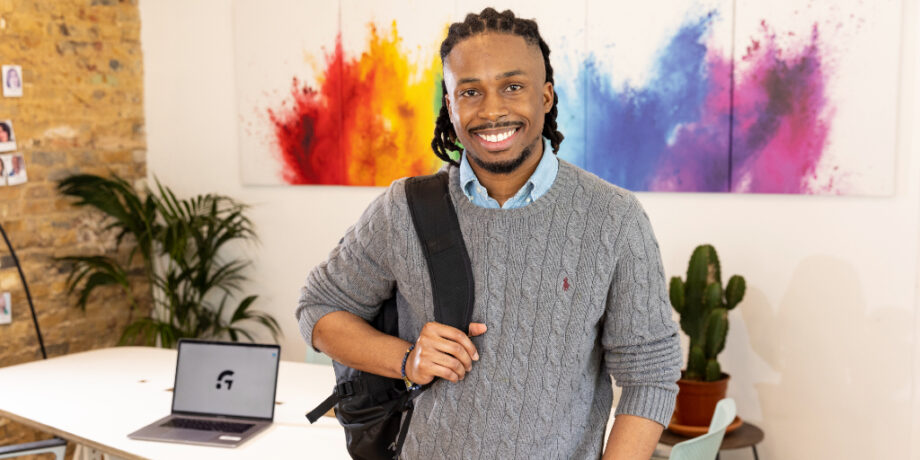Pearce Jarrett
Machine Learning Engineer
Founder & CEO, Gwaan
Although Pearce studied Economics at university, he later found his true passion in machine learning and expanding the possibilities of technology through attending online courses and watching YouTube videos on Artificial Intelligence (AI) and data science.
Pearce now runs Gwaan, an AI-powered personal training app, which won a Innovate UK Young Innovators Award in 2020/2021.
Before COVID-19, I was on a bit of a gym kick. Then lockdown happened.
I started doing online workouts, but I couldn’t determine whether I was improving or getting fitter. When I was at the gym, a personal trainer would spot if I was becoming a bit discouraged or getting tired and would step in.
When you’re at home alone, there’s no one to give you that motivation. I had a smartwatch, but it only recorded my heart rate and my steps. It couldn’t tell me whether I was getting better at burpees, or improving my lunges. To solve that problem, I created Gwaan, an AI-powered personal trainer!
We’re a small company with the aim to launch later this year. I run the company with my wife, and we have a couple of contractors who work with us as well.
Of course, I want my business to be successful but for me, legacy is more important. I want what I do to have a positive impact on the community.
Typically in the media, there is a focus on young, Black men mentioned in news stories in relation to knife crime. By naming my company Gwaan – patois for “Go on!”, I wanted people to subconsciously connect my Afro-Caribbean culture, and being a young, Black man myself to something that empowers people to pursue their goals, and to foster a better-connected community through fitness.
A lot of my day-to-day is spent imagining what I need to do to achieve my goals. I work out in the morning using Gwaan, testing out the product and the performance of some of the updates we’ve done. From there, I deal with whatever the problem of the day is. If something needs optimising I’ll work on that, whether it’s developing new machine learning models or speeding up system-related things that are a bit slow. Then I’m into meetings, perhaps as part of the Foundervine cohort or Microsoft for Startups.
I love seeing it all come together: how something can grow from an idea, mixed with enough hard work, tenacity, and some tears.
Before I moved into the tech world, I had a preconception that you had to be really nerdy to work in the sector. What I didn’t realise was that creativity is a must.
Sure, there are rules you have to follow for things to work because computers are very logical. But once you learn how to hold the paintbrush, the job requires a high level of creativity.
Because I am dyslexic, the way in which I learn things has always been a little bit different from everyone else. I enjoyed maths and science at school, and excelled in thinking outside of the box but reading was always tricky. As I got older, I recognised that I could absorb a lot of information through videos on YouTube and that I could get my Mac to read to me – both of which were game-changers! Scientific journals – which visually are horrible – were no longer scary to me.
Growing up knowing someone like Richard Branson was dyslexic, for example, reminded me that learning in a different way has helped me to develop key skills and strengths that have given me an edge in whatever career path I set my mind to.
Click here for more scientists who are Smashing Stereotypes.



